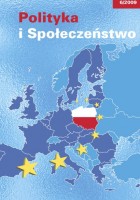NARODOWA DEMOKRACJA WOBEC ROSYJSKIEGO KOMUNIZMU (1918–1939)
National Democracy vis-à-vis Russian Communism (1918–1939)
Author(s): Tomasz KoziełłoSubject(s): Political history, Government/Political systems, Pre-WW I & WW I (1900 -1919), Interwar Period (1920 - 1939)
Published by: Wydawnictwo Uniwersytetu Rzeszowskiego
Keywords: National Democracy; Russian Communism
Summary/Abstract: Communism, according to the National Democrats (ND), was characterised by a tendency to subordinate all spheres of social life and to make citizens think in a uniform manner by means of terror and violence. It aimed at creating a structure of social relations within which a narrow circle of governing elites would prevail over masses of slaves devoid of rights and forced to work for the benefit of the rulers. National Democracy was afraid that the communist authorities who had taken control of Russia would intend to enforce this political regime in other nations and countries to enslave the whole world and surrender it to the unlawful Bolshevik rule. On the other hand, however, ND as a political party discerned weaknesses inherent in the Russian communism, such as influences of Jews in the state apparatus, who were hated by the Russians, inability to solve economic problems, its fight against religion which was strongly embedded in the Russian society, conflicts over power in the milieu of the Communist party leaders. These factors were believed to lead to a rebellion of the social masses against the Bolsheviks, whereas the weakening of the governing structures was thought to facilitate a national uprising to result in a collapse of the communist system. In consequence, the National Democrats both opposed the communist system of values as embodied in the Bolshevik practices and hoped for the defeat of this ideology owing to the society’s rejection of its criminal activities.
Journal: Polityka i Społeczeństwo
- Issue Year: 2009
- Issue No: 06
- Page Range: 47-55
- Page Count: 9
- Language: Polish

